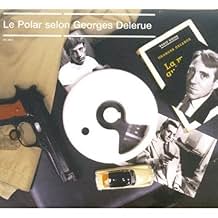Aggiungi una trama nella tua linguaA man plans a hold-up with a group of trusted fellows, he gets his hands on the money, and the girl - what could go wrong? Almost everything.A man plans a hold-up with a group of trusted fellows, he gets his hands on the money, and the girl - what could go wrong? Almost everything.A man plans a hold-up with a group of trusted fellows, he gets his hands on the money, and the girl - what could go wrong? Almost everything.
Jean Lefebvre
- Le curé
- (as Jean Lefevre)
- …
Serge Bento
- Un footballeur
- (non citato nei titoli originali)
Maurice Bénard
- Petit rôle
- (non citato nei titoli originali)
Lucien Callamand
- Le serrurier
- (non citato nei titoli originali)
Robert Dalban
- Le brigadier
- (non citato nei titoli originali)
Trama
Lo sapevi?
- ConnessioniRemade as Ka lok bang dai sha, ka lok na dai korn (1991)
Recensione in evidenza
In France ,nobody did film noirs like Duvivier.They say he invented the genre with his "Pepe le Moko" (1937).Duvivier's films noirs are as pessimistic as it can be.His characters are pitiful at best or evil.All along his brilliant career,from "Poil de Carotte" to "La fin du Jour" to "voici le temps des assassins",Duvivier was the poet of the blackness of the human soul,he used to paint the inmost depths of greed and perversity.Chabrol has sometimes equaled him ,never surpassed.Along with Clouzot,he reigns over the French film noir.
"Chair de poule " :those were the days of the Nouvelle Vague and Duvivier's work was dismissed as cheesy "cinema de qualité".Those were the days.But Duvivier's work survived.Hadley Chase's book resembles "the postman always rings twice" but Duvivier manages to take its noir side to new limits.In Cain's work,love did exist between the two leads.Here greed ,rapaciousness.Nothing else.Welcome to Duvivier's world.
As I wrote above ,Duvivier's characters are either pitiful and meek (Daniel,Thomas) or pure evil(Maria,the old man and his ugly offspring ,Paul).The odd couple (the not-so-handsome hubby and his sexy wife) was already in "Voici le temps des assassins"(1956).The only living being we can trust seems to be a dog ,an animal that plays an important part in both movies.Maria (Catherine Rouvel) recalls often Catherine (Danielle Delorme) but her sensuality is more aggressive .
Duvivier 's directing is perfect :he treats one of his scenes like a true western:"this is the Wild West" Paul says while entering the eating-house.And Rouvel ,trying to learn the combination of the safe from a wounded Hossein,reminds me of Von Stroheim's "greed". Duvivier avoids all the easy way outs ,all the Hollywood tricks, and his movies are among the few we can call "genuine" film noirs.The last part,which drags all the characters towards doom,culminates in an apocalyptic scene ,with the final pictures depicting Hell's antechamber.
Although not looked upon as one of Duvivier's best,"Chair de poule " was great ,coming from a sixty-something who had perhaps never made a truly bad film.
A remake was filmed in Thailand.
"Chair de poule " :those were the days of the Nouvelle Vague and Duvivier's work was dismissed as cheesy "cinema de qualité".Those were the days.But Duvivier's work survived.Hadley Chase's book resembles "the postman always rings twice" but Duvivier manages to take its noir side to new limits.In Cain's work,love did exist between the two leads.Here greed ,rapaciousness.Nothing else.Welcome to Duvivier's world.
As I wrote above ,Duvivier's characters are either pitiful and meek (Daniel,Thomas) or pure evil(Maria,the old man and his ugly offspring ,Paul).The odd couple (the not-so-handsome hubby and his sexy wife) was already in "Voici le temps des assassins"(1956).The only living being we can trust seems to be a dog ,an animal that plays an important part in both movies.Maria (Catherine Rouvel) recalls often Catherine (Danielle Delorme) but her sensuality is more aggressive .
Duvivier 's directing is perfect :he treats one of his scenes like a true western:"this is the Wild West" Paul says while entering the eating-house.And Rouvel ,trying to learn the combination of the safe from a wounded Hossein,reminds me of Von Stroheim's "greed". Duvivier avoids all the easy way outs ,all the Hollywood tricks, and his movies are among the few we can call "genuine" film noirs.The last part,which drags all the characters towards doom,culminates in an apocalyptic scene ,with the final pictures depicting Hell's antechamber.
Although not looked upon as one of Duvivier's best,"Chair de poule " was great ,coming from a sixty-something who had perhaps never made a truly bad film.
A remake was filmed in Thailand.
- dbdumonteil
- 1 ago 2005
- Permalink
I più visti
Accedi per valutare e creare un elenco di titoli salvati per ottenere consigli personalizzati
Dettagli
- Tempo di esecuzione1 ora 47 minuti
- Colore
- Proporzioni
- 1.66 : 1
Contribuisci a questa pagina
Suggerisci una modifica o aggiungi i contenuti mancanti

Divario superiore
By what name was Pelle d'oca (1963) officially released in Canada in English?
Rispondi
























